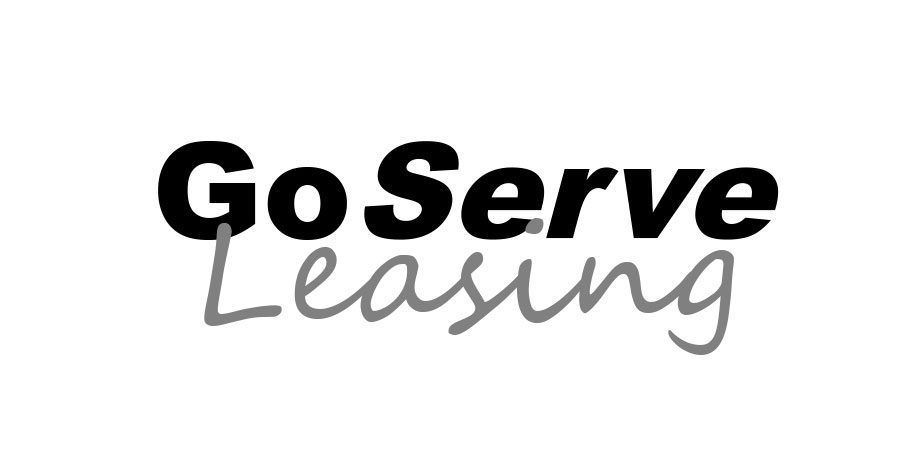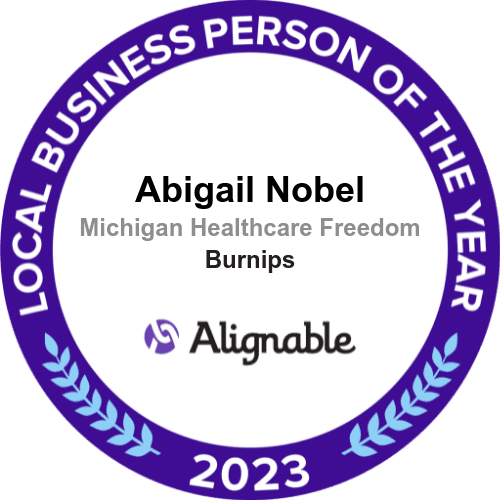
Updated June 15, 2023
Michigan already has a long bill list, and you know more are coming. (Last term saw 207 bill votes just for health policy.)
Bookmark your resources now to see what has gone down, and be ready for more:
Find your Michigan State Representative
- MI House Health Policy Committee
- All bills referred to this committee to date
- MI House Behavioral Health Subcommittee
- Get to know the players
- Sign up to get hearing agendas by email - House Committees & Live Broadcast Schedule
- House Video Archive
- Look up previous hearings
Find your Michigan State Senator
- MI Senate Health Policy Committee
- Get to know the players
- Sign up to get hearing agendas by email
- View documents, bills, and people who testified at previous hearings - MI Senate Committees and Recorded Archives
- Legislature Bill Search
- Read the bills, Fiscal Agency analysis, and follow the process toward becoming law
Contact Governor Gretchen Whitmer at 517-335-7858.
Know another helpful resource? Add it in the comments.
And... the balance of power changes in Lansing.
Strategy, too.
In today's email Letter from the Editor appropriately entitled, "The glory of a gridlocked Lansing," Michigan Capitol Confidential insightfully comments on what this means for freedom, including healthcare freedom.
This week the House Democrats lost their 56-54 majority when two members, Kevin Coleman of Westland, and Lori Stone of Warren, won their mayoral races.
On Monday, Coleman and Stone will take office, reducing the House to 108 members and the party split to 54-54.
On Tuesday, the legislature will adjourn for the year, a month and a half early. Rather than negotiate or share power in order to obtain the necessary 55 votes to pass a bill, House Speaker Joe Tate, D-Detroit, opted to end the year early. Since it takes two to tango, the Senate followed suit.
They say that politics makes strange bedfellows. This time it resulted in an empty Capitol. Good.
If this is a preview of the months to come, before elections for the Coleman and Stone seats can be held, it could save Michiganders a lot of money. These are the glory days, if we dare to see it.
Every day Lansing takes off work is another day when its tentacles cannot reach into your life, your child's classroom, or your wallet.
Lawmakers can return home to their districts and look their neighbors in the eye. Hear their feedback at coffee shops and town halls and office hours. Spend time with the people who sent them to Lansing. Maybe even remember that these are people they were elected to serve. Not their new friends in Lansing.
Enjoy these days of divided government. When it comes to Lansing, no news is good news.
Yours in gridlock,
James David Dickson
Michigan Capitol Confidential
The MiVotes website is back up, completely reengineered and ready for business.
Fewer functions than the old one, but blazingly fast. You should check it out and bookmark it.
https://www.michiganvotes.org/
The Michigan Legislature publishes a "brief description of the major steps of the legislative process a bill must go through before it is enacted into law."
Great primer of Michigan's bill process.
https://www.legislature.mi.gov/documents/publications/HowBillBecomesLaw.pdf
Michigan Capitol Confidential's Scott McClallen reports our state's financial health.
Excellent timing! We're approaching the end of the first post-Covid-funding term, when money flowed like water in Lansing. And inflation - I'm not even going to say it.
https://www.michigancapitolconfidential.com/news/michigan-earns-a-d-grade-for-finances
Michigan earns a ‘D’ grade for finances
Truth In Accounting ranks state 35th out of 50 for financial health
If Michigan needed to pay all its bills, every taxpayer would have to pay $7,600.
That’s according to a new analysis from Chicago-based Truth In Accounting, a think tank that analyzes government financial reports. Truth in Accounting gives the Wolverine State a “D” grade in its 15th annual Financial State of the States report.
According to the report’s A-through-F grading scale, any government with a ”taxpayer burden” between $5,000 and $20,000 earns a D. The report uses the term "taxpayer burden” to include the amount required to pay off all a state’s debt.
In 2023, Michigan’s finances improved by $12.5 billion when reported revenues exceeded expenses, and liabilities for pension and retiree health care decreased due to changes in actuarial assumptions. Michigan had $46.9 billion available to pay $75.1 billion worth of bills, leaving a shortfall of $28.2 billion. If that amount is divided by every Michigan taxpayer, each would pay $7,600. Most of that debt stems from unfunded pensions and other post-retirement benefits to public workers.
The largest improvement in the state’s financial condition related to decreases in unfunded pension and retiree health liabilities for the Michigan Public Schools Employees’ Retirement System. Those decreases occurred thanks to changes in the economic, demographic and other assumptions used to estimate future benefit payments. That good news evaporated this year after a drastic cut by the Legislature in funding for pension liabilities.
Michigan ranked 35th out of 50. The state isn’t alone. TIA says 27 states don’t have enough money to pay their bills.
For most states, this report is based on the audited Annual Comprehensive Financial Reports for fiscal year 2023, showing the most recent information available.
State fiscal mismanagement harms taxpayers, as well as public employees such as teachers, firefighters, and police officers, who count on pension and health care benefits for their retirement.
“Most states’ financial conditions improved in fiscal year 2023,” Sheila Weinberg, founder and CEO of Truth in Accounting, said in a statement. “But the states should focus on bolstering their retirement systems so they can weather market downturns and other economic uncertainties in the future.”
The report features a broad range of state spending approaches, which yield a variety of results. Connecticut moved into last place because it needed more than $64.9 billion to pay its bills. If you were to divide that figure by the number of Connecticut taxpayers, the taxpayer burden is $44,300. Conversely, North Dakota had more than enough money to pay its bills, with a taxpayer surplus of $55,600.
Open the Books has a tagline: "Every Dime. Online. In Real Time." It certainly seems to be accurate in the page entitled "Michigan's Checkbook."
Every transaction, every vendor, since 2017. Annual totals, in billions of dollars.
Our dollars, which one can't help feeling would have been better spent by those who earned them.
The detail is incredible. You really have to see the listed businesses, the sheer number of checks the state writes in our name.
https://www.openthebooks.com/michigan-state-checkbook/
Skilled legislative governance is an art, science, and so much more.
West MI Politics makes the case that Michigan's House is at last compensating for the brain drain caused by term limits.
Posted for its value toward learning governance, with apologies for the rank partisanship that occasionally breaks out.
Clipped for length.
https://westmipolitics.blogspot.com/2025/05/speaker-of-house-matt-hall-is-making.html
Speaker Of The House Matt Hall Is Making The Lansing Establishment Feel The "HEAT"
By Brandon Hall | Friday, May 16, 2025Lansing, like DC, has been described as a swamp---but it's REALLY actually more like a big ol' nasty pigpen---and Speaker Of The House Matt Hall is making the pigs squeal.President Reagan famously said (while talking about Congress), "if you can't make them see the light, make them feel the heat."
Reagan passed away in 2004, but his spirit is alive and well in the Michigan legislature with Speaker Hall as he fights the Lansing establishment.Hall's marquee proposal is even literally named HEAT: The Hall Ethics, Accountability, & Transparency Plan.Legislator Autonomy When Hiring And Firing StaffImmediately upon taking office as Speaker, Matt Hall ended the controversial practice that was long used for decades in Lansing allowing the Speaker to control the staffers of a legislator.Now, our State Representatives hire and fire their own employees without any threats or pressure from the Speaker's office---a remarkable change giving House members the freedom to say what's on their mind and vote how they'd like---without losing their staff.Lame Duck ReformFor far too long, under both Republican and Democrat "leadership," Lansing politicians have rammed all sorts of horrendous bills through during what's known as lame duck, the time period after the November election is already over, but before new elected officials take office January 1st.A few years ago, Senate Majority Leader Arlan Meekhof held Senators hostage in the Senate chamber under threat of arrest shortly before Christmas, forcing them to vote on a heap of horrendous legislation.And just last year, when Joe Tate was Speaker Of The House, he unsuccessfully tried to do the same thing!Those days are over.Speaker Hall is now requiring a 2/3ds vote of the State House in order to move any legislation forward in lame duck, a truly revolutionary move that has sent shockwaves through the big lobbying and consulting firms. Lobbyists just lost one of the dirtiest tricks in their playbook!Banning Legislators From Signing NDA'sRecently, elected officials have been busted signing non-disclosure agreements with private entities, foreign governments, corporations, and other groups.In one case, Senator Elissa Slotkin signed a secret NDA with the controversial Chinese company Gotion!In another, State Senator Curtis Hertel signed a secret NDA with the Michigan Economic Development Corporation.Lansing politicians need to honor their oath and follow the Constitution, not make secret deals they hide from their Constituents!Speaker Hall's bipartisan plan stops legislators from hiding behind NDAs.2 Year Lobbying BanIn 2022, with 6 months still left to go in his term, State Rep. Jim Lilly bailed on his seat to be the chief lobbyist and leader of Government Affairs at Spartan Nash.Such brazen greed and blatant disrespect of Michigan taxpayers is totally legal---but Speaker Hall has a plan to stop it.Under Speaker Hall's legislation, sleazy politicians like Jim Lilly would have to wait 2 years before they can be lobbyists in Michigan.Hall also wants to close the loophole that actually allows current legislators to lobby in other states WHILE they are in office!Ending Secret Appropriations EarmarksLegislators can no longer secretly request money for special projects without identifying themselves.For example, in 2023, Fay Beydoun, a Metro Detroit woman connected to Governor Whitmer, received a $20 million grant now under investigation by Attorney General Dana Nessel.Beydoun famously spent $4,500 on a coffee maker with taxpayer money! Which legislator earmarked the money for her is still unknown...Not only that, but all the requests from State House members are now publicly available in a searchable database.Unlike most things Jocelyn Benson does, this website actually works, and is easy to use!For years, the Lansing establishment looted billions from taxpayers with these BS tricks---not anymore under Speaker Hall.Expanded, Comprehensive House Oversight CommitteeSpeaker Hall has given the House Oversight Committee historic authority to issue subpoenas as it investigates Governor Gretchen Whitmer, Secretary Of State Jocelyn Benson, Attorney General Dana Nessel, and others.Usually, subpoenas at House Oversight have to be dealt with individually, on a case by case basis---not anymore.The Oversight Committee now has the ability to subpoena whoever they need to in order to get answers.One of the biggest issues the Oversight Committee is investigating is "how the Government abused its authority and failed in public transparency during COVID."The controversial Chinese Gotion scandal is also on the agenda, among many other important subjects.Speaker Hall’s MAJOR expansion of the House Oversight Committee in order to make sure the investigations cover all the bases includes 6 subcommittees:-Weaponization of State Government-Child Welfare System-Corporate Subsidies and State Investments-Public Health and Food Security-Homeland Security and Foreign Influence-State and Local Public Assistance Programs<clip>








